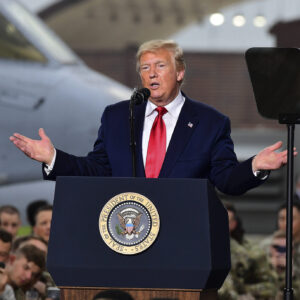In a rare and notable moment of bipartisan unity, the United States Senate voted unanimously—100-0—to suspend military and financial aid to Azerbaijan for a period of two years. This historic decision came amid rising concerns that Azerbaijan was preparing to launch a military invasion of neighboring Armenia, further destabilizing an already volatile region. The Senate’s action was encapsulated in the passage of the Armenian Protection Act, a piece of legislation designed to send a powerful message about the conditions under which the U.S. provides foreign aid and military support.
The act was introduced by Senator Gary Peters (D-Mich.), who serves on the Senate Armed Services Committee. The passing of the Armenian Protection Act comes at a time when tensions between Armenia and Azerbaijan have reached a boiling point, largely due to the ongoing conflict in the Nagorno-Karabakh region. The crisis has seen an exodus of more than 100,000 ethnic Armenians from the region, many of whom were forced to flee after a brutal siege by Azerbaijani forces that has lasted more than nine months.
The act passed through the Senate with unanimous consent, a rare feat in an era marked by deep political divides. It underscores the growing international concern over Azerbaijan’s actions in the region, as well as the U.S. government’s desire to reinforce the principle that foreign aid must come with clear conditions and a commitment to ethical behavior. The legislation specifically targets Azerbaijan’s actions regarding its treatment of ethnic Armenians, accusing the country of engaging in what many observers, including the Armenian government, have described as ethnic cleansing.
The passage of the Armenian Protection Act comes on the heels of a devastating humanitarian crisis that has seen more than 100,000 Armenians flee the contested Nagorno-Karabakh region. Azerbaijan’s siege, which has been ongoing for nearly nine months, has resulted in widespread displacement, hunger, and violence. The region has been the site of bitter territorial disputes for decades, and Azerbaijan’s recent actions have exacerbated the situation, leading many to accuse the country of using its military power to forcefully expel Armenians from their historic homeland.
The displacement of Armenians from Nagorno-Karabakh has led to significant international outcry, with numerous human rights organizations condemning Azerbaijan’s actions. The UN has called for an immediate end to the military actions, urging Azerbaijan to allow humanitarian aid to reach those in need and to cease its attempts to alter the demographic makeup of the region.
The Armenian Protection Act, by targeting U.S. aid to Azerbaijan, represents an attempt to leverage America’s significant financial and military influence to push back against the actions of the Azerbaijani government. The act’s passing is seen as a direct response to the humanitarian crisis in Nagorno-Karabakh, signaling that the United States will not stand idly by while such atrocities unfold.





